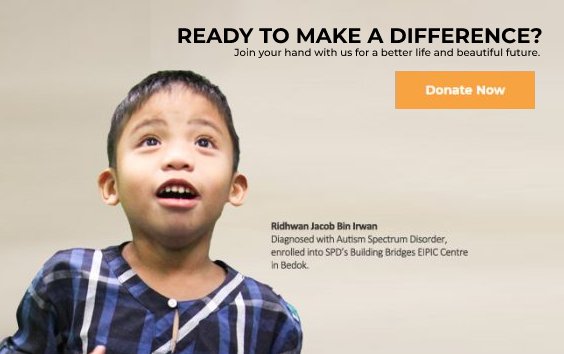Singapore, 20 June 2007 – Initiative aims to equip disabled individuals with technology skills for enhanced quality of life and employability
Microsoft Singapore today will host a ‘Realizing Potential Charity Gala Dinner’ where the company will pledge more than S$470,000 to benefit the Society for the Physically Disabled (SPD) as part of the President’s Challenge 2007. On hand will be Microsoft CEO Steve Ballmer, with His Excellency President S.R. Nathan and Mrs. Nathan as Guests-of-Honor, and 400 other dignitaries, media, corporate and individual donors. Jazz performances by Claressa Monteiro, Eunice Olsen, Vocaluptous and SPD, will be the highlight of the evening.
Through Microsoft Singapore’s Unlimited Potential Community Technology Skills Program, the company will invest S$1 million over the next three years to help people with disabilities. This program supports the government’s agenda to create a digitally inclusive society. There is an estimated 150,000 Singaporeans with some form of disability–a number that is expected to grow as the population ages. Microsoft’s Unlimited Potential efforts are a long-term commitment to use technology, training and partnerships to transform education, foster local innovation, and enable jobs and opportunities to sustain a continuous cycle of social and economic growth for the estimated 5 billion people who are not yet realizing the benefits of technology.
“Technology can help to reduce and eliminate barriers for people with disabilities,” Ballmer said. “We enthusiastically support Singapore’s efforts on behalf of the disabled community and a digitally inclusive society. Our partnership with SPD is a step in this direction.”
Commenting on the donation, Dr. Ow Chee Chung, SPD’s Executive Director: “Technology can bridge social and economic gaps by creating an environment that provides equal opportunity to all. Microsoft’s strategic partnership allows us to provide state-of-the-art technology training to those who would otherwise lack access to even basic computer skills education. We are helping disabled members of our community attain the skills they need to not only survive, but to succeed in today’s workforce.”
The grant is expected to benefit individuals such as Lim Koon Heng, who has been earning a salary of S$500 per month as a technician in a voluntary welfare organization. As tetraplegic, he could not afford the training to become a systems administrator, but it will change with this initiative. “This is my opportunity to learn new technology skills, and I want to grab it. I hope this certification can help me improve my IT skills and my job prospects,” said Heng.
Ms Irene Toh, a mother of three, is keen to return to the workforce after 19 years. A homemaker with Congenital Poliomyelitis, she wants to acquire skills that will increase her chances of finding employment. “I have not worked in many years, and I’m not sure what my skills are. The basic certification will help me gain technology skills that will enable me to get a computer-related job. The next step is to go for the intermediate certificate so I can learn how to make brochures and graphics, which might help me get an even better job,” said Toh.
Through the partnership with SPD, Microsoft will be setting up a “Microsoft Accessibility & IT Center” to provide IT training and certification for people with disabilities. This center is the first in Singapore to provide accessibility training on Windows Vista, Microsoft’s new operating system, which includes enhanced built-in accessibility settings and programs.
More than 4,000 disabled individuals are expected to benefit from this training center in the next three years, with courses addressing basic, intermediate and advanced training. Basic training would focus on building proficiency in personal computing, followed by an intermediate training module focused on developing skills that helps improve employability, such as multimedia and desktop publishing. Lastly, the advanced level training will focus on individuals who already are in IT-related jobs and are looking to upgrade their skills. Training under this initiative officially started on 23 April 2007 and will be conducted by specialized trainers from SPD. There are future plans to set-up similar satellite IT training centers in Singapore and to develop regional “train-the-trainers” programs to benefit people with disabilities from around the region.
Since 2003, Microsoft has donated more than $255 million through the Unlimited Potential Community Technology Skills program, making investments designed to help broaden digital inclusion and aid global workforce development by providing technology skills through community technology centers (CTCs). Microsoft made a five-year, $1 billion global commitment to Unlimited Potential and other programmes to bridge the digital divide in May 2003. To date, the company has distributed nearly $50 million in cash and software. In Asia Pacific, Microsoft has initiated programmes in partnership with 126 non-profit organizations to provide at-risk youth, refugees, senior citizens, migrant workers and people with disabilities with an opportunity to develop IT skills. Additional information on Microsoft Accessibility Resource Centers can be found at www.microsoft.com/enable/centers/

